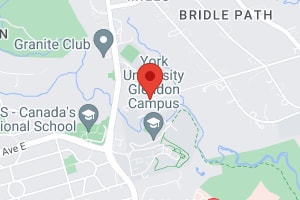
How we see Crestwood School
Compare with:
How Crestwood School sees itself
"Located in a picturesque, wooded valley in the Bayview/Post Road area, Crestwood School provides quality education to students in Junior Kindergarten to Grade 6. At Crestwood, we practise the traditional art of teaching, challenging young minds to learn and structuring experiences that make learning possible. At the same time, we are concerned with the "whole child," striving to balance a child's physical, social and emotional development. Smaller class sizes are maintained, allowing for individual attention and the fostering of effective communication between students and teachers in a friendly, caring, nurturing environment. Crestwood strongly promotes co-operative attitudes and behaviour, and is committed to the preparation of self-confident, self-disciplined individuals who respect the feelings and rights of others. Each teacher is the key. With a well-planned program, a positive rapport with each student, a close communication between home and school, and a sense of commitment and dedication, our goals are met!"
"What we do uniquely well is meeting students where they are at and helping them reach their individual potential. Crestwood School believes that we need to teach students in the way they learn best, rather than trying to fit each student into a predetermined box. Our philosophy centres on recognizing and celebrating each student's unique journey and personal achievements. Instead of solely highlighting those with the highest marks we honour and support the strides made by every student, fostering an environment where personal progress is valued and encouraged. This approach ensures that all students feel recognized and motivated, understanding their individual efforts and improvements are meaningful and worthy of celebration. We also strive to instill strong values including: integrity, respect, responsibility, empathy and community involvement."
"The students and families who get the most out of Crestwood School are the ones who have an open mind, take advantage of the wide variety of programs we offer, and look for ways to help contribute to our school community. Students and families whose values align with the school's values of integrity, respect, responsibility, empathy and community involvement are ideal candidates for our school."


How people from the school’s community see Crestwood School
Top-down influence on the school’s direction and tone

Dalia Eisen, Director
Parents who want their children to receive a “good education” must concern themselves with what kind of education is best for their children and how their education will directly affect their growth into adulthood. It goes without saying that children should be competent in the 3R’s (reading, writing, and arithmetic) but at the same time, parents must look at long term goals for a lifetime of education.
One of the most important goals of education is to teach children how to learn. Children must be able to think critically in order to evaluate what they see, hear, and read. This is a skill which is paramount, not only to structured education, but to life in general. Another goal that must be achieved is to have children develop the necessary traits of a healthy personality. Self-assurance, self-respect, trust in others, and respect for others must be developed.
Next, we want the children to work well with others. Sharing with others, understanding the needs of others, and assuming responsibility for the well-being of others are important qualities one must have in our world today.
Finally, we want the children to work creatively in order to fully express themselves as the unique individuals they are.
I feel that when children are provided with a stimulating and nurturing environment, a positive attitude to education and to those around them results.
At Crestwood, our goal is to provide students with sound academic skills, while at the same time providing them with the framework from which they can develop the necessary lifelong skills which I feel encompass a “good education.”
Dalia Eisen
THE OUR KIDS REPORT: Crestwood School
Next steps to continue your research:
Continue researching Crestwood School with OurKids.net, or visit school website.